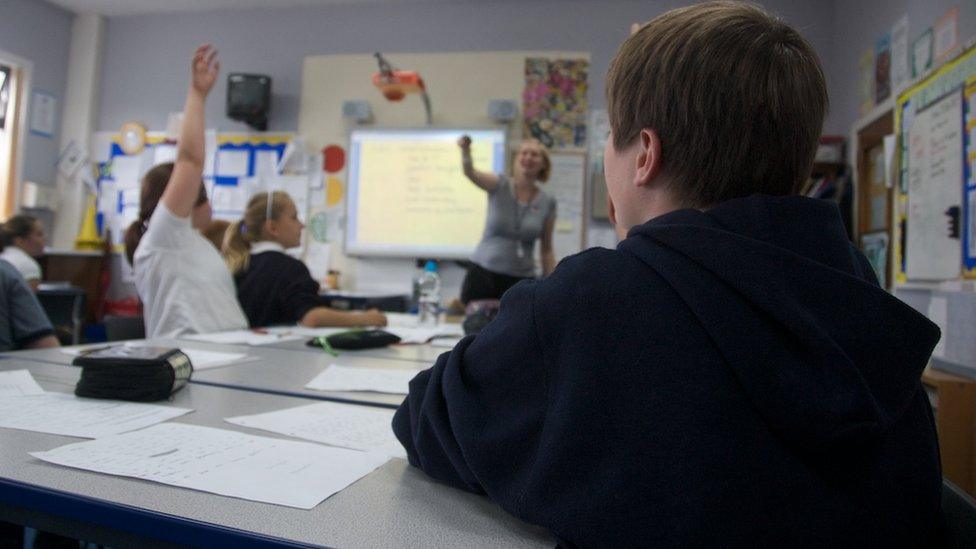Teachers vote to spend 'less time with pupils'
- Published
- comments

Teachers voted to spend less time in front of pupils
Scotland's biggest education union is to campaign for a cut in the amount of time teachers spend in front of pupils.
Delegates at the EIS conference in Perth overwhelmingly backed a motion saying teachers should spend no more than 20 hours a week with students.
This compares with the 22.5 hours of teaching time at the moment.
The aim is to increase admin and preparation time and help reduce what the union regards as the excessive workloads facing teachers.
The union said the target of a 20-hour teaching week was a long term aspiration - not an immediate demand.
'Excessive workload demands'
To secure that objective, more teachers would need to be recruited to ensure there was no reduction in the amount of time students spent with professionals.
Teachers are contracted to work a 35-hour week.
This includes 12.5 hours to spend on tasks such as marking and preparing lessons.

Earlier in the week, the union published details of a survey of more than 12,000 teachers that suggested six out of 10 full-time teachers were working more than eight hours above their contracted time each week.
The union also reaffirmed that it would like to see the maximum class size in both primary and secondary schools gradually fall to 20.
The annual conference opened on Thursday, with a total of 59 motions to be debated at the three-day meeting.
'Reduce workload'
Union bosses anticipated that concern about excessive workload demands was likely to be a recurring theme.
Ahead of the conference EIS general secretary Larry Flanagan said: "Teachers are working many additional hours over and above their contractual commitments, with serious impact on their family life and on their mental and physical wellbeing.
"The EIS welcomes the commitments to reduce workload that were written into the recent Scottish negotiating committee for teachers agreement on teachers' pay - and we now expect local authorities and the Scottish government to make quick progress in delivering those commitments."
- Published6 June 2019
